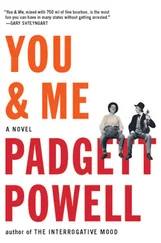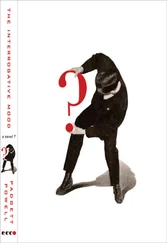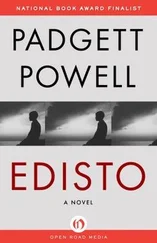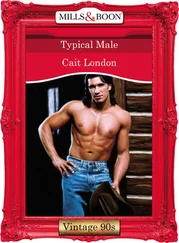“Nice rig,” Borger comments.
“Germ-free,” Mr. Irony instructs.
Mr. Irony does not attain the parboiled look we three have, and his step is sharp, his stride long. The rest of us, mineralized and boiled and sober, veer along softly.
“Now I feel like one of those catfish that live in caves,” Pampa says after the third and final day in steam.
“The white ones, dear?” Mr. Irony asks.
“White, blind ones, dear.” She looks around, suspicious of Mr. Irony’s term of affection. The Traveling Women share a low-lidded squint with one another. Something fishy.
In a bar across from the grand row of baths, Mr. Irony declares that he will help us. “I propose to restore you to your electrolytical feet. Allow me.” He orders a pitcher of vodka and three ponies of liqueurs for us each. “Sup at these as you would side dishes. This,” Mr. Irony says, lifting the pitcher, “is the roast beef.”
In fifteen minutes we are well along onto our electrolytical feet. The Traveling Women are crying with affection for Mr. Irony, hugging him, and I cannot shake the sensation that I am an eel. Mr. Irony tenders a speech. “Ladies, forgive me my earlier curtnesses with you. I meant no harm. Sexism is, if you will, etiological.”
“Do what?”
“A long time ago,” Mr. Irony says, “a crocodile bit a hippopotamus on the nose and effected, voilà ”—Mr. Irony touches his nose and slides his arm away from him into space, trombone style—“an elephant.”
The Traveling Women enjoy a look of profound eye-widening comprehension. “And elephants don’t forget,” they say, nearly in unison.
“Precisely. And I am sorry,” Mr. Irony says, bowing his head. With tears the Traveling Women look at him, and they hug each other.
“Mr. Irony,” I manage to say, “were the liquid in me not absorbed into cottony cells, had I fodder at all, sir, if I felt like anything but a starved moray eel, I’d throw up.”
“Hedge up, boy. Minimalize your self-importance. Limn with humility.”
“Rock breaks scissors,” I say, feeling my way, speaking automatically. “Scissors cut paper. Paper covers rock. Poon breaks irony.”
Mr. Irony purses his lips, looks at the end of his cigarette, as if waiting for my tirade to end. “Not bad. Keep it to yourself.”
“Mr. Irony, have you been bitten hard?”
“Elucidate.”
“The — the Ingenue thing. There are, apparently, life’s Ingenues and life’s Vietnam Boys, and—”
“The inconsequential and the consequential?”
“Yes, sir. The bitten-hard.”
“The bitten-hard. I see now. I see.”
We are in hot-air balloons, jetting on a blue plume activated by a pull cord over desert. Mr. Irony watches the ground carefully to spot something at which a ballast bag might be thrown. “I would not counsel your courting the hard bite,” he says. “Is that a shack?”
“Looks like it, sir.”
“Bombs away.” The flour sack speeds in a miraculous arc down to the tin roof of the shack and strikes with a sound not unlike a child striking an oatmeal box. “Gabby Hayes should dash out in a state of confusion, precisely now,” Mr. Irony says. As we drift away, no one emerges from the shack. “He consumed — that prospector — too much red-eye last night.” We are in a silent, unfired drift, only the creaking of the basket to be heard.
“I have the feeling,” I say, “that there are hardbitten folk walking around with a certain advantage over those of us who haven’t had … well—”
“Do people with one arm have a certain advantage over those with two? Yes, in a way: they know something unstandard. Same for the bitten brain, the psychological one-arm. But, son, listen: irony will not survive the bite, the truly hard bite.”
Mr. Irony shimmers at the word, perhaps more clearly than I’ve seen him shimmer before, because, I think at the time, of the clear desert air and our altitude.
Mr. Irony hefts up another bag. “You may be silly, on the one hand, or wounded, on the other, but you do not elect to be wounded. Is that a dune buggy?”
“Yes, sir.”
“Helmets on ’em?”
“Looks to be, sir.”
“Your shot.”
I let the bag go and it hits the desert in a broadening white puff.
“Missed by a quarter mile, I’d say,” Mr. Irony assesses.
“It’s a moving target, sir.”
“And from a moving gun.”
“It’s the girls, I think.”
“Hand me a bag.”
Following a column of mountain goats, Mr. Irony, angular and bearded, looks not unlike a common goat chasing its betters.
“We’ll never shoot one of them things,” Pampa says.
“We’re not supposed to,” Mr. Irony impatiently declares, sighing, stepping carefully up the rocks. “We’re supposed to tire and drop our rifles from fatigue and descend to the lodge with our blisters.” There are tiny radio transmitters on the rifles which would seem to corroborate Mr. Irony’s assessment of what we’re to do on Duke’s Man-at-His-Best Rocky Mountain Goat Safari. There’s a curious footnote in the brochure: “If hunters wish, they may, as in recent American combat experience, jettison their weapons.”
“Thing to do,” Mr. Irony says, “is put these damned cannon someplace they can’t get to with the helicopter — make ’em hike in.”
“Chap some ass,” Borger says.
“Chap some ass,” Pampa adds.
“Chap some ass,” Mr. Irony says.
As the goats continue to move vertically, their powerful bushy rumps just out of range, we turn laterally and head for a close-looking space between two peaks. Mr. Irony says: “Mine shaft’d be nice.”
We were given the opportunity to choose means of transport during the next leg of Duke’s Man-at-His-Best World Tour. The territory to be crossed was Georgia and South Carolina, south to north. We could take I-95 with a life-insurance salesman who had once been an oil rigger and then had tried to be a bass guide for Roland Martin, or we could take back roads in a log truck with a crew of pulpwooders. Duke said, “Excuse the indelicacy, but in local parlance these fellows, black or white, are known as pulpwood niggers, and they stink to high heaven, have potted meat and Mellow Yellow for lunch, do not visit dentists.” There was no question which Mr. Irony would choose, and we were not surprised to see Borger and Pampa pile into the insurance salesman/bass guide’s 4×4 Blazer Silverado with smoked glass all around. As the doors closed, we saw the salesman spray a shot of Binaca into his mouth.
“His hairdo was not unreminiscent, was it, of Woody Woodpecker?” Mr. Irony asked.
“I thought so myself,” I said, and I had, precisely. The coiffure looked artificially blown up, almost teased, into a topknot at the front of the fellow’s head, and it was in fact carrot-colored. Mr. Irony and I, by this sight, were reassured that we had made the correct choice of transport. We sat together on the cooler of beer Duke had advised us to prepare for our ride with the pulp-wood niggers, patient in our waiting, for Duke had also advised that, though we would arrive at the destination (Dillon, S.C.) well before the insurance salesman would have gotten us there, we might depart up to two hours later.
The pulpwood niggers were three. The driver was white, wearing a blue mesh cap that read I’m a Rebel and Damn PROUD OF IT. At shotgun was a black with his hair plaited into spikes, over which he had tied a black nylon scarf in Arab fashion, with two nylon tails down his back. “Healthy-looking individual,” Mr. Irony remarked of him. “Got them Husqvarna arms.” In the middle of the seat was a suggestion of human form, as a cicada hull on a pine tree suggests an insect. He was chinless, chestless, slumped down bleary-eyed between his larger colleagues. We came to learn he was “the oiler,” by which title was signified his entire raison d’être: when the other two ran equipment, he carried and administered the lubricants. If it was chain saws, he carried a pistol-style oil can, squirting the hot blades, muttering every time, “Self-oilers don’t work for shit.”
Читать дальше












